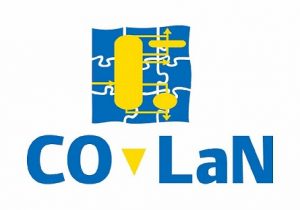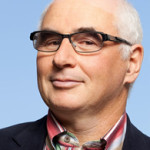
The Full Members present were:
- BASF represented by Peter MAUER
- BP represented by Peter BANKS
- Dow represented by Werner MERK
- IFP represented by Bertrand BRAUNSCHWEIG
- Mitsubishi Chemical Corporation represented by Tetsuo SHIRAO
- Shell Chemicals represented by Hans PINGEN
- TotalFinaElf represented by Michel PONS
The only Associate Member present was JGC, represented by Hiroshi Okada. The Assembly welcomed as guests DECHEMA, represented by Dr Richard SASS, and Degussa, represented by Dr Ralf JANOWSKY.

There was general agreement amongst the Full Members that the top priority was to get enough CAPE-OPEN functionality implemented commercially to allow routine use to be established in some sectors of the process industries. This would generate valuable feedback to both users and vendors, which would allow informed decisions to be made about future progress.
The generation of user priorities was felt to be an important contribution from CO-LaN to the industry. Since they have been developed from a range of companies, they could help to reduce the confusion experienced by the vendors in trying to resolve the often conflicting messages coming from individual companies. As CO-LaN expands, they will deliver an even clearer message.
Dr JANOWSKY, as a member of IK-CAPE, who has followed CAPE-OPEN from the start, made some observations about attitudes that he felt might be encountered in approaches to potential member companies:
- The general view is that Standards Development Organisations (SDOs) tend to be slow and ponderous.
- Most operating companies have no software development capabilities, so could not contribute to CO-LaN.
- An operating company frequently uses only one vendor’s products, so any interfaces needed could be developed by that vendor. Why does it need to join CO-LaN?
- Any operating company usually belongs to other industry groupings, eg IK-CAPE, and can influence vendors by that route.
- Since CO-LaN is a new organisation with no track record, any operating company would like to see some success stories before considering joining.
The Full Members agreed to launch the first Special Interest Groups: Thermodynamics (leader: Werner MERK), Unit (leader: Hans PINGEN) and Numerics (leader: Michel PONS).
The budget for 2002 was accepted, with the proviso that activities would have to be scaled back in line with the identified priorities, if 15 full members were not recruited. The annual membership fee for a Full Member was kept at 10 K€.
| Expenses | in K€ |
|---|---|
| Mission 1: User Priorities | 0 |
| Mission 2: Exploitation and dissemination | 60 |
| Mission 4: Testing | 55 |
| Mission 5: Training and migration facilitation | 0 |
| Administration | 10 |
| Total | 150 |
| Income | in K€ |
| Fees assuming 15 Full Members | 150 |
| Balance | 0 |
Finally a new Management Board was elected with IFP (represented by B. BRAUNSCHWEIG) as President, with Dow (represented by W. MERK) as Vice-President, with BP (represented by P. BANKS) as Secretary, with TOTAL (represented by M. PONS) as Treasurer, with BASF (represented by Peter MAUER), Mitsubishi Chemical Corporation (represented by Tetsuo SHIRAO) and Shell Global Solutions (represented by H. PINGEN) as Members.
